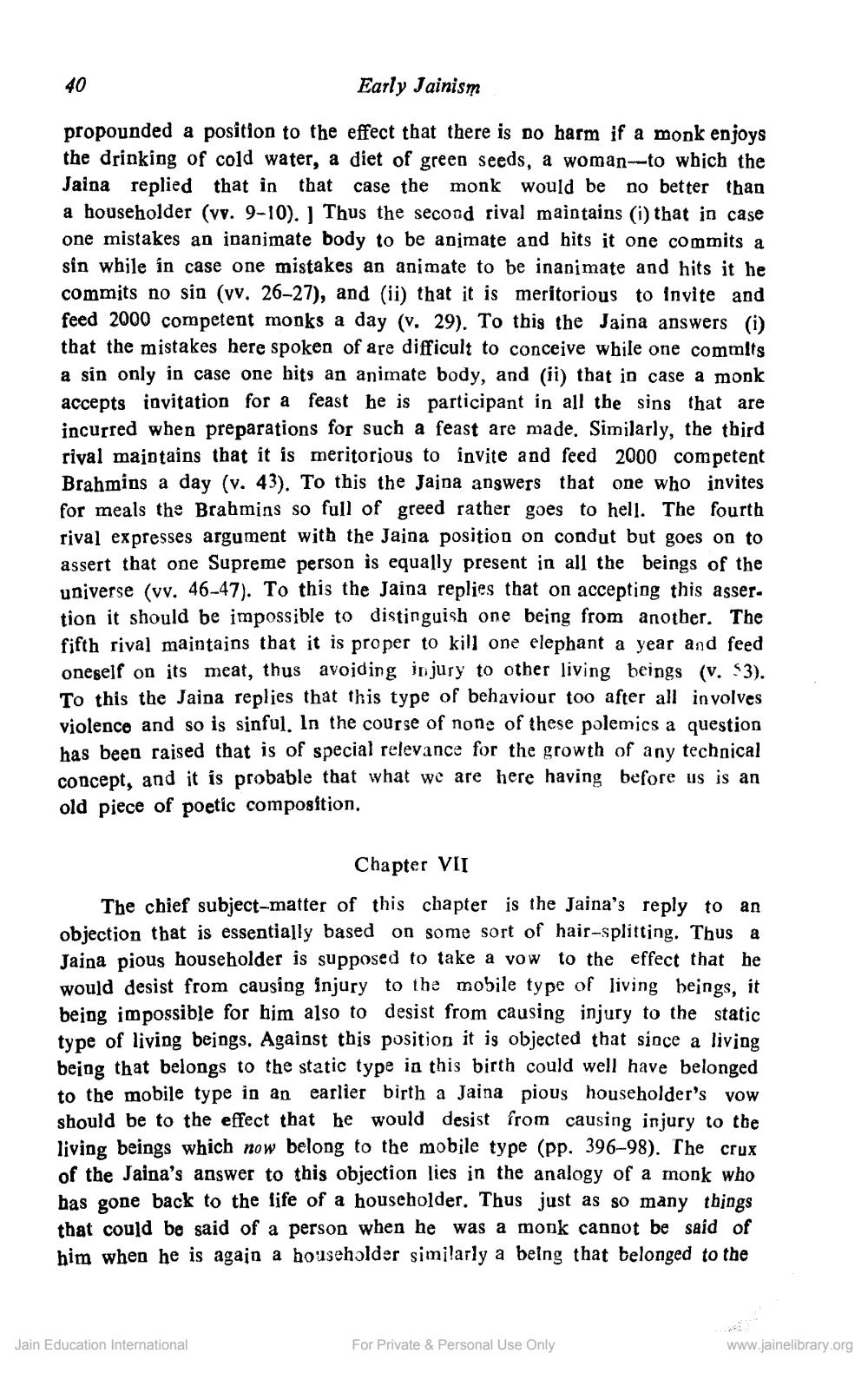________________
40
Early Jainism
propounded a position to the effect that there is no harm if a monk enjoys the drinking of cold water, a diet of green seeds, a woman to which the Jaina replied that in that case the monk would be no better than a householder (vv. 9-10). ] Thus the second rival maintains (i) that in case one mistakes an inanimate body to be animate and hits it one commits a sin while in case one mistakes an animate to be inanimate and hits it he commits no sin (vv. 26-27), and (ii) that it is meritorious to invite and feed 2000 competent monks a day (v, 29). To this the Jaina answers (i) that the mistakes here spoken of are difficult to conceive while one commits a sin only in case one hits an animate body, and (ii) that in case a monk accepts invitation for a feast he is participant in all the sins that are incurred when preparations for such a feast are made. Similarly, the third rival majotains that it is meritorious to invite and feed 2000 competent Brahmins a day (v. 43). To this the Jaina answers that one who invites for meals the Brahmins so full of greed rather goes to hell. The fourth rival expresses argument with the Jajna position on condut but goes on to assert that one Supreme person is equally present in all the beings of the universe (vv. 46-47). To this the Jaina replies that on accepting this asser. tion it should be impossible to distinguish one being from another. The fifth rival maintains that it is proper to kill one elephant a year and feed oneself on its meat, thus avoiding in jury to other living beings (v. 53). To this the Jaina replies that this type of behaviour too after all involves violence and so is sinful. In the course of none of these polemics a question has been raised that is of special relevance for the growth of any technical concept, and it is probable that what we are here having before us is an old piece of poetic composition,
Chapter VII
The chief subject-matter of this chapter is the Jaina's reply to an obiection that is essentially based on some sort of hair-splitting. Thus a Jaina pious householder is supposed to take a vow to the effect that he would desist from causing injury to the mobile type of living beings, it being impossible for him also to desist from causing injury to the static type of living beings. Against this position it is objected that since a living being that belongs to the static type in this birth could well have belonged to the mobile type in an earlier birth a Jaina pious householder's Vow should be to the effect that he would desist from causing injury to the living beings which now belong to the mobile type (pp. 396-98). The crux of the Jaina's answer to this objection lies in the analogy of a monk who has gone back to the life of a householder. Thus just as so many things that could be said of a person when he was a monk cannot be said of him when he is again a householder similarly a being that belonged to the
Jain Education International
For Private & Personal Use Only
www.jainelibrary.org




